
Only 28,000 Miles to Go
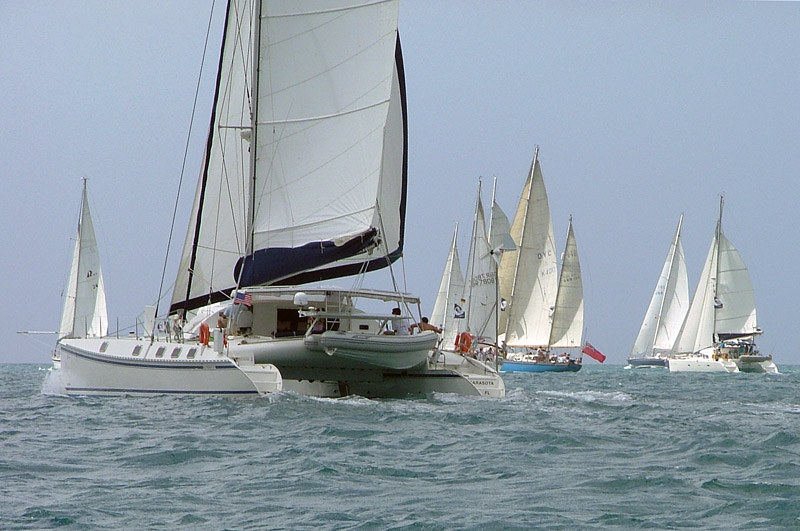
"We were off St. Lucia in the Eastern Caribbean on Wednesday for the start of the World ARC around the world rally," report Terry and Evelyn Drew of the Santa Cruz / Caribbean-based Aquarelle. "There were 35 starters in St. Lucia, with more to join the fleet in Panama and Australia. Two U.S. boats started, with another to join them on the other side of the Canal. It’s going to take the fleet 15 months to go around. First across the line and headed for Panama was Far Out, a Southern Wind 72 from Denmark. One of the starters, Viva, was in the yard with us just a week ago getting repairs made to the skeg. Petra, the only woman skipper in the event, said she was still looking for crew for some of the upcoming legs."
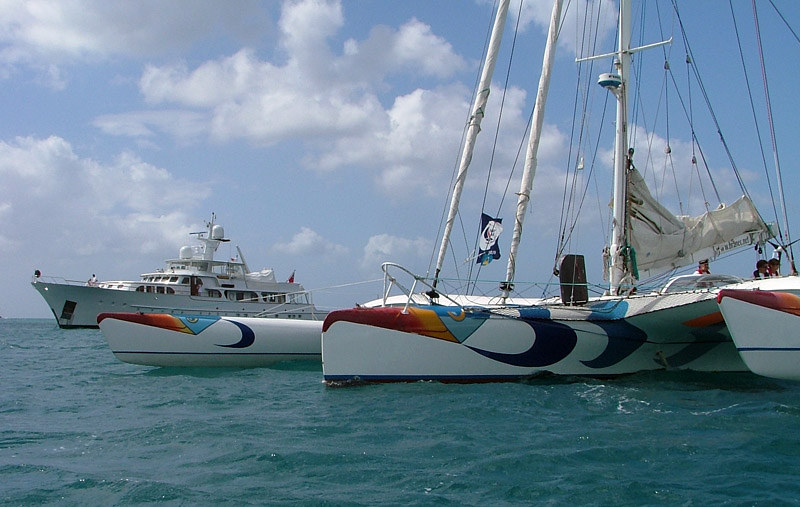
"As for us," the couple continue, "next week we’ll be headed up to the Saintes off the coast of Guadeloupe."
Making the World a Smaller Place
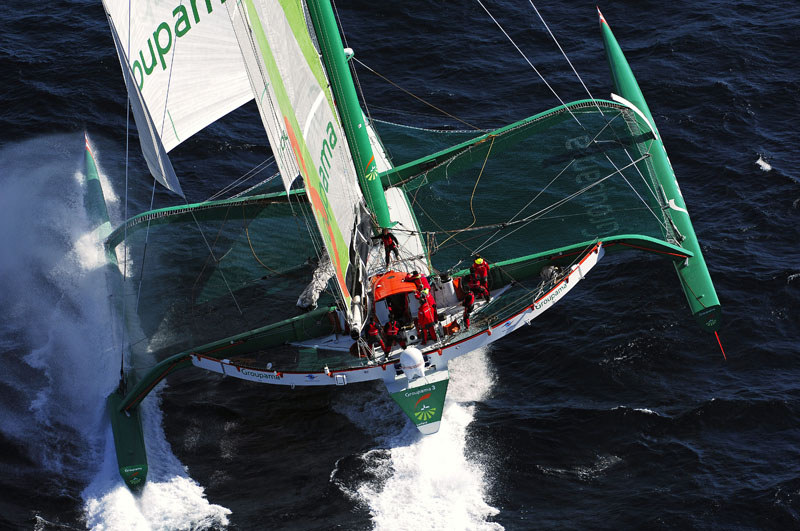
Franck Cammas’ 105-ft trimaran Groupama 3 is already slightly ahead of Orange II‘s 2005 record pace, when skipper Bruno Peyron and his crew of 13 rounded the world in 50 days, 16 hours. Only 24 hours after departing the English Channel, Cammas and his crew of 10 were already south of Lisbon, Portugal, having covered 616 miles. The road ahead looks to hold some light patches, but in addition to being capable of sustained speeds of 40 knots, Groupama 3 is reportedly more suited to traversing these speed bumps than Peyron’s 125-ft catamaran. Cammas’ team say they believe they’re capable of a 45-day trip, and they’d likely know, given that they’ve already set the outright 24-hour speed record with their craft — 794 miles, set last July on the same trip they whittled four-and-a-half hours off Orange II‘s New York-Lizard transatlantic record.
Great News for Cruisers in Ecuador
Tripp Martin, harbormaster at Ecuador’s Puerto Amistad YC, reports some welcome news from that part of the world. "For the past four months, Puerto Amistad, Puerto Lucia, Salinas YC, Guayaquil YC, the Ecuadorian Yachting Association, Ministry of Tourism, and the Navy have all been working together to reform the rules changes in order to make them less onerous," Tripp told Latitude. "The new rule allows the four mentioned yacht clubs to basically serve as ship’s agents for private boats, and has greatly simplified the check-in/zarpe process. The new rule allows the yacht to send a simple email to the Navy on arrival. Once acknowledged and entered into their database, the boat will be received in the capitania. You will not have to hire an agent in these places, there is no requirement to check in while underway, as has been eroneously reported."
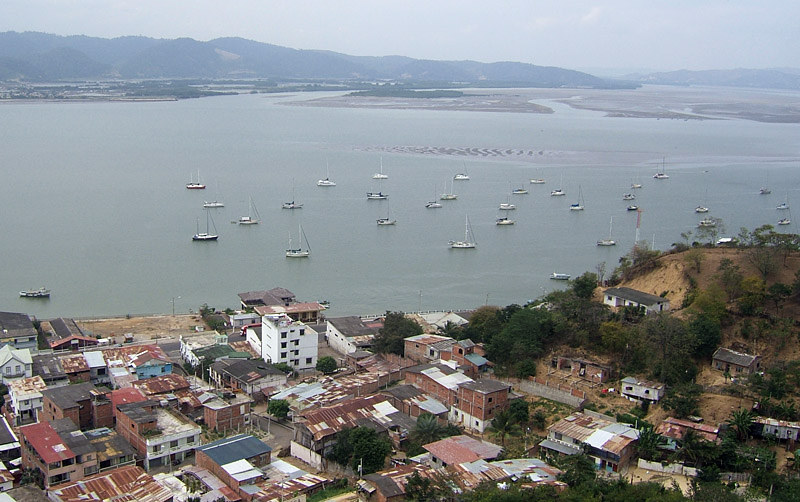
Tripp also reports that the government is actively working on other cruiser-related issues — namely, how long a boat can stay in the country and the availability of fuel. "It’s been widely reported that the Ecuadorian government has become hostile to cruisers, and implied that they don’t want us here. The reality is far different. What’s going on is that the new government has tasked the authorities to clean up their act in many major areas, and they’ve responded with some knee-jerk reactions that have been terribly implemented. Slowly we’re trying to get them corrected, but we’re working with extremely bureaucratic organizations. Cruisers have basically been unintended collateral damage in their efforts to get rid of fuel smuggling, control of the borders, etc."
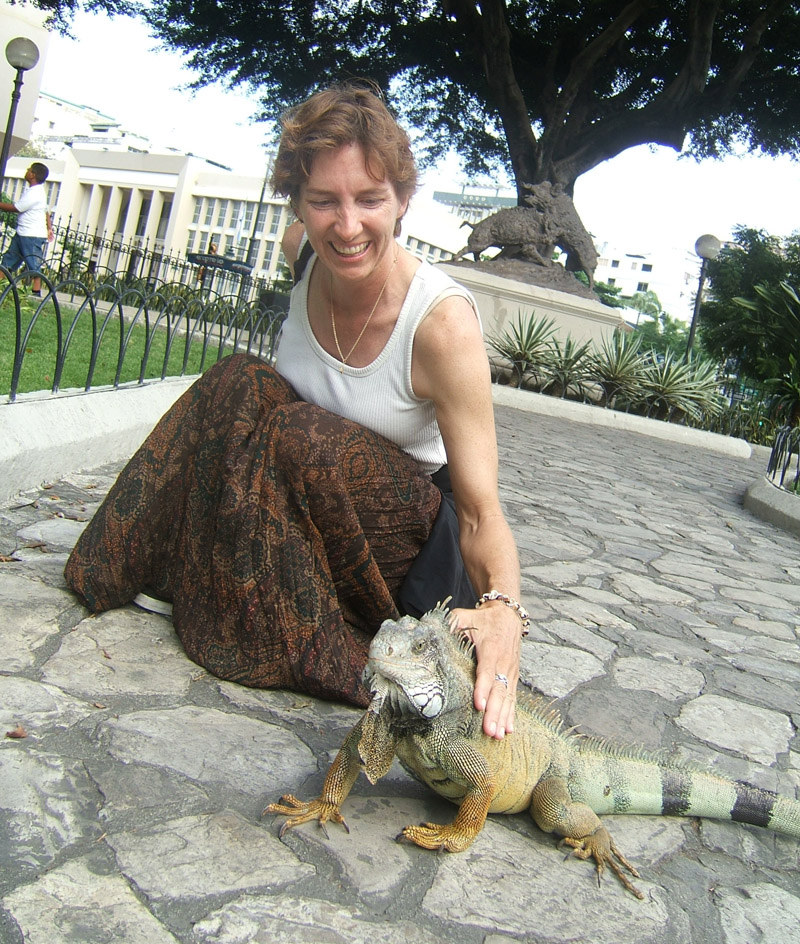
"I hope that everyone who has been considering coming to Ecuador takes into account the rules changes we’re making, and chooses to come down and take advantage of all the wonderful things the country has to offer."
Lower Fees for Fishing in Mexico
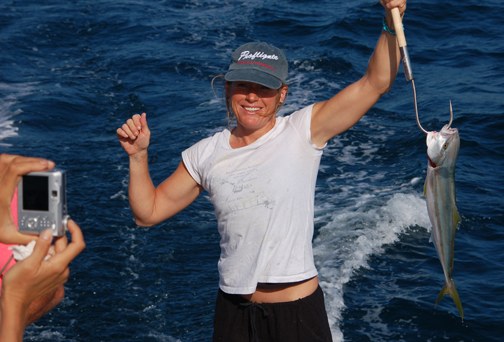
©2008 Latitude 38 Media, LLC
Conapesca, the Mexican sportfishing agency, has announced new licensing policies for ’08 that will be welcomed by cruisers. In the past, boats — as well as their dinghies, and technically even liferafts equipped with fish hooks — needed to have expensive licenses. That’s no longer true. Starting on January 7, only individuals needed licenses.
While it’s true that everyone aboard the boat, whether fishing or not, must have a license, the licenses are now $25 a week, $37 a month, or $48 a year. If you’re a couple on a boat, that’s a considerable savings over the previous cost of being licensed. You can get your license by going to www.conapescasandiego.org.
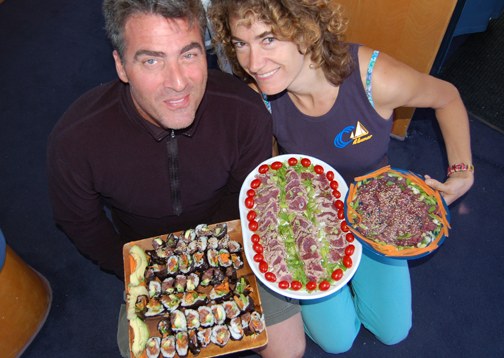
©2008 Latitude 38 Media, LLC
Here are some of the highlights of the Mexican fishing regulations:
- One rod per person.
- No mollusks or crustaceans can be taken.
- There’s a limit of 10 fish per day, with no more than five of one species. However, there is a limit of one per day of the following group: marlin, sailfish, swordfish and shark. When it comes to dorado, roosterfish, shad and tarpon, the limit is two per day.
- The limit for underwater fishing is five per day, and you must use a rubberband or spring harpoon, and only use it while skindiving.
- It’s illegal to collect shell and coral.
- It’s also illegal to fish within a quarter of a mile of swimmer.
These all seem like fair rules, so please, abide by them.
